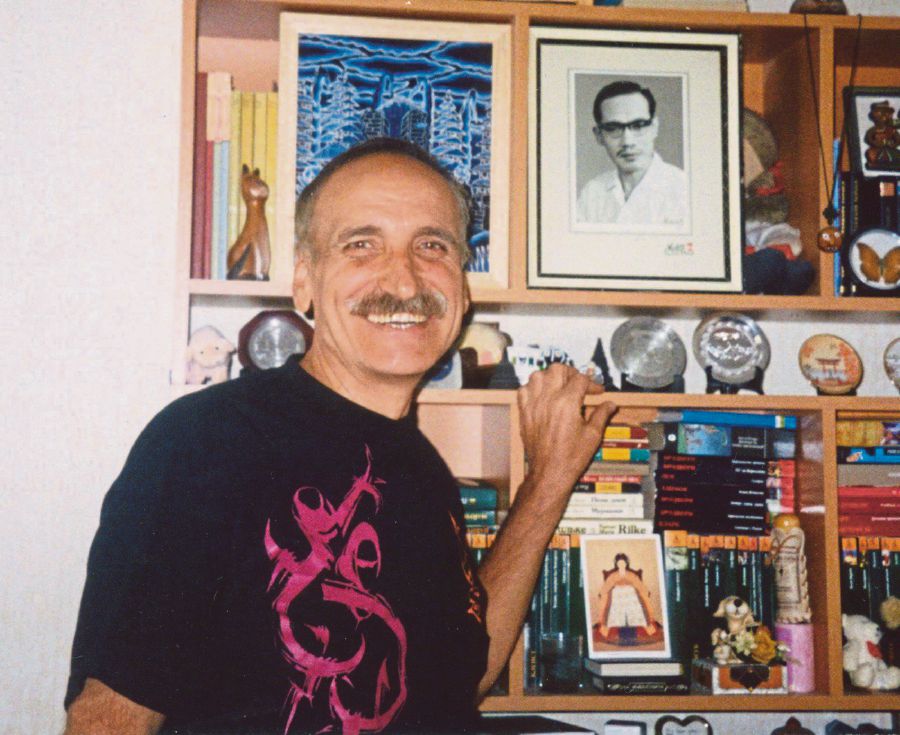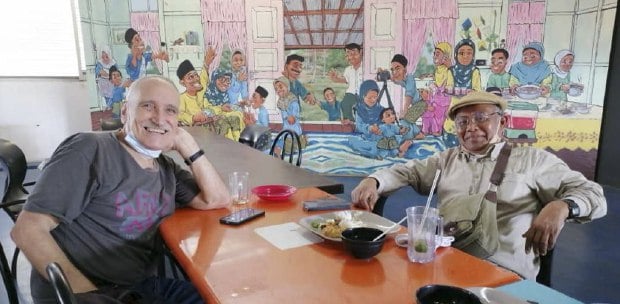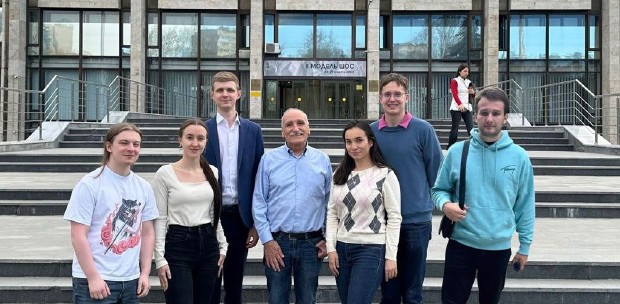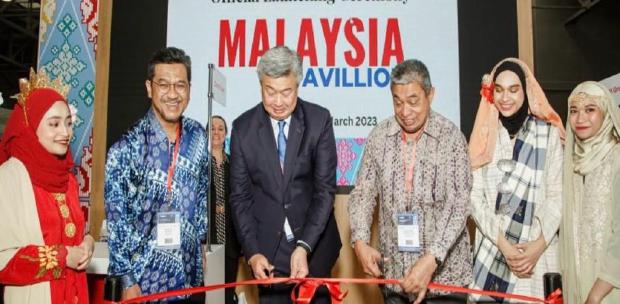On the wall of my room in Moscow hangs a portrait. The man in Malay attire smiles at me. "Who is he? Why is his portrait here?" my friends often ask me. And, for the umpteenth time, I would recount the memories of living in Malaysia.
In 1970-1971, I was in the first group of Soviet students in Malaysia on an internship in Malay language under a student exchange programme, three years after the establishment of diplomatic relations.
At the Institute of Oriental Languages at M.V. Lomonosov Moscow State University, we studied the Indonesian language. But our lecturer Andrey Pavlenko (son of the famous Soviet writer Pyotr Pavlenko and famous translator Natalia Treneva) taught us the Malay language.
The material for learning was the Berita Harian newspaper, which he somehow obtained. I remember that newspapers had a small stamp on them which showed that they were censored (formally, of course, because no one knew Malay language in the USSR at that time).
The Malay and Indonesian languages then differed much because even the spellings were different. I remember we were amused by the word "bomba". We, of course, translated it as "bomb", not suspecting that in Malay, it meant fireman.
At Universiti Malaya, during the internship, we soon made friends. They sympathised with us, and admired the successes of our country, saying, for example: "Just think, the Americans landed on the moon to get samples of lunar rock. The Russians were smarter. Without risking the cosmonauts, they had machines working for them."
One of our friends was Khazin. Once, during a break between lectures, he came up to us and asked if the girls in our country wore miniskirts.
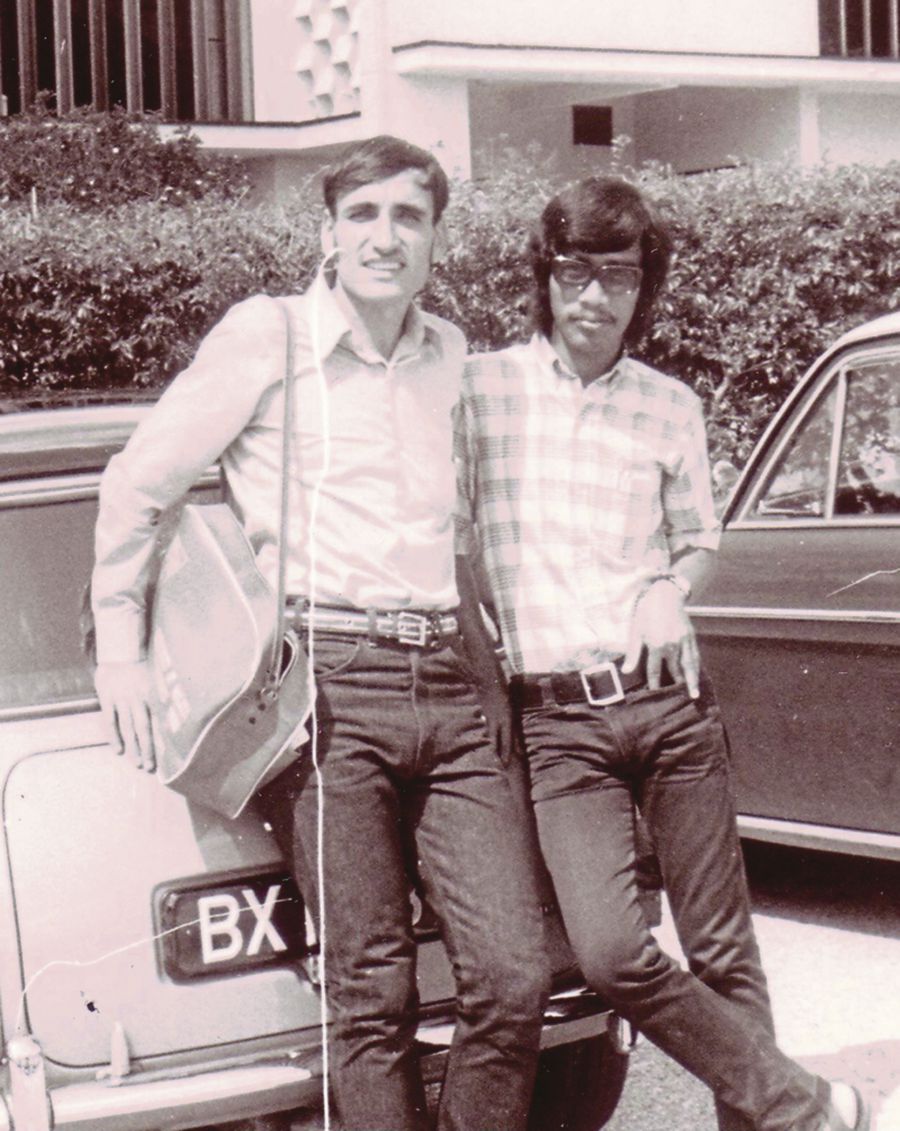
One of our students, Tatiana Dorofeeva, laughed and said the mini was not in fashion, and that everyone had switched to the maxi.
Khazin often came to the Fifth Residential College where we stayed and helped us to master Jawi, and we taught him Russian.
On Hari Raya Aidilfitri, he invited me to visit his family on the outskirts of Klang, where his father, who taught religion at a local school, had a small plot of land planted with coconut palms and sugarcane.
With a large bouquet, I arrived at Khazin's house. I will never forget that meeting. We sat together until midnight.
I told his father about the Moscow metro, how the Quran of the Arab caliphs was seized by the Tsarist government from the Muslims of Tashkent and returned to them by a special decree of Lenin.
For the first time, I tasted Raya dishes. I slept, like everyone else, on the floor, on a mat.
We parted as friends. I wanted to do something nice for Khazin, to thank him for his hospitality. I came up with the idea to give him something that would always remind him of our meeting.
I wrote to my friends in Tashkent and they sent me a beautifully printed Quran.
After some time, I went back to that little place near Klang. Khazin's younger brothers and sisters rushed out to meet me.
His father, Mohamed Tamrin, greeted me warmly.
We sat on the mat. I handed him the Quran. He washed his hands, kissed the sacred letters embossed in gold, and carefully opened it.
"The Quran, the Quran from Russia," he whispered "How clearly the verses are printed. Thank you!"
Then, he gave me his portrait that was hanging on the wall.
"Here, take it, I have nothing more to give you, Russian friend."
At night, in my sleep, I heard him mentioning my name during prayer. I sometimes think that, maybe, thanks to his prayers, I have achieved a lot in my life.
What about Khazin? We met again in 2001 at Universiti Malaya, this time as a lecturer. Khazin was attached to Universiti Kebangsaan Malaysia as an associate professor. During our meetings, we reminisced about his father and my visits to his house.
Unfortunately, he passed away last year.
But I will not forget him and his hospitable father during the 1971 Hari Raya celebration. I always remember our friendship when I look at the portrait of Mohamed Tamrin.
The writer, writing from Moscow, was a former lecturer of Universiti Malaya


